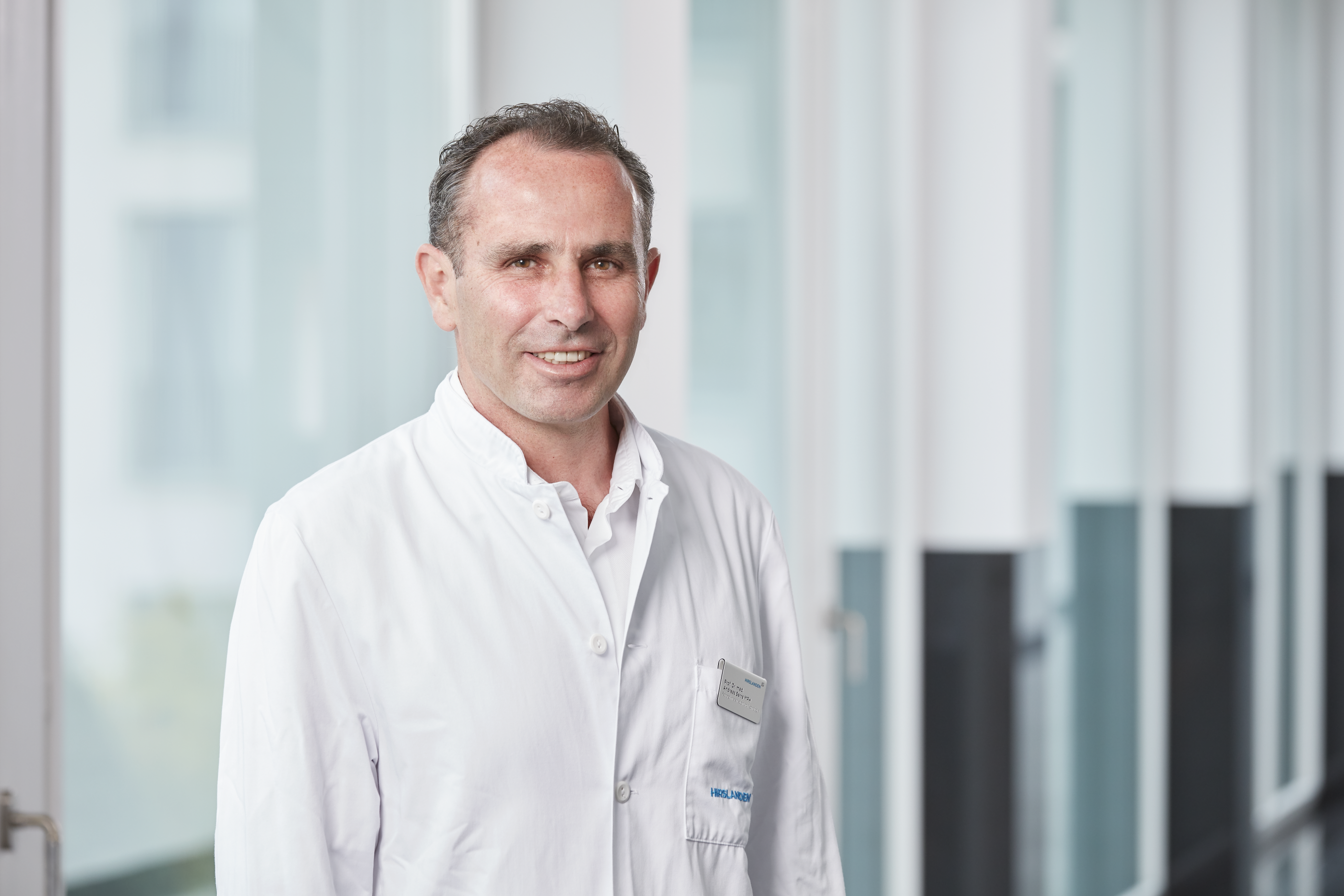
Interview: The problem is a lack of connection
Prof. Dr. Andreas Serra is an internist and nephrologist based at Hirslanden Hospital in Zurich. He sees patients with sick kidneys due to different underlying diseases. He cares deeply about the doctor-patient-relationship that he considers essential for therapy adherence – as holds true for high blood pressure.
CKD may be the fifth most frequent cause of death in 2040 if prevention and therapy don’t change considerably. Why do you think this is?
Prof. Dr. Andreas Serra: There are several reasons, and I think hypertension, i.e., high blood pressure, is one of the most important ones. Untreated hypertension leads to strokes, heart attacks, and massive kidney impairment.
What may be the reason that so many hypertensive patients go untreated?
First, it is difficult to discover high blood pressure. It is called “silent killer” for a reason, because you can’t feel it. And even if it is discovered and diagnosed, therapy adherence in everyday life is not easy for many people. Therapy adherence means taking the prescribed medications regularly. Many people perceive this as a nuisance and feel reminded of being needy. Hypertension is a very emotional disease. Because you can’t feel it, whether it is untreated nor under medication. Even the opposite may hold true: Many people feel more energetic with a slightly elevated blood pressure than with a normal one.
How important are wearables such as fitness bracelets in this context, that facilitate some extend of home monitoring of one’s own health?
They can be helpful. There are blood pressure monitors in the shape of a bracelet for your wrist available. They measure with you hardly noticing. They provide both doctor and patient with a better estimate. They are very helpful for biofeedback.
… and then probably for therapy adherence. How do you think this could be further improved?
I consider building a relationship between doctor and patient the most important contributor to compliance, i.e. therapy adherence. If this is lacking, half of the patients discontinue their therapy even though they shouldn’t.

Without consultation, on their own account?
On their own account, because they are not convinced that they are sick. Nobody consciously gambles with a stroke, a heart attack or kidney failure. Of course, doctors explain that this can happen. But reason alone is not enough. It is the emotional level that doesn’t work well. It also needs to be felt. Such a long-term chronic therapy requires a trusting relationship between doctor and patient.
This is also a shout-out to health care professionals! How do you think doctor-patient-relationships could be improved? How exactly could it be done?
As a physician I must be aware what it means for a 30- or 40-year-old patient to be chronically ill and being on medication for the rest of their lives. Since I don’t feel sick with a high blood pressure, I don’t necessarily feel healthy with the medication. It doesn’t make a perceivable difference. The question is: How does being on medication permanently affect the self-perception of a patient? His sexuality, his partnership? These issues need to be addressed. If the doctor keeps silent about them or the patient ignores them, their readiness to stop the therapy on their own account is much higher. Therapy of hypertension is a promise for the future not to suffer a stroke, a heart attack or kidney failure. It is this promise that the patient needs to feel.
In a nutshell: The kidneys are safe if the underlying disease is well treated?
For hypertension, this is the case –in the vast majority of casescases it is well treatable. If not, neither the medication, a lack of resources, physicians or poor research on the underlying disease is to blame. It is a lack of connection!

The importance of a check up
Almost as simple as washing hands - a little urine test could prevent dialysis and transplantation.